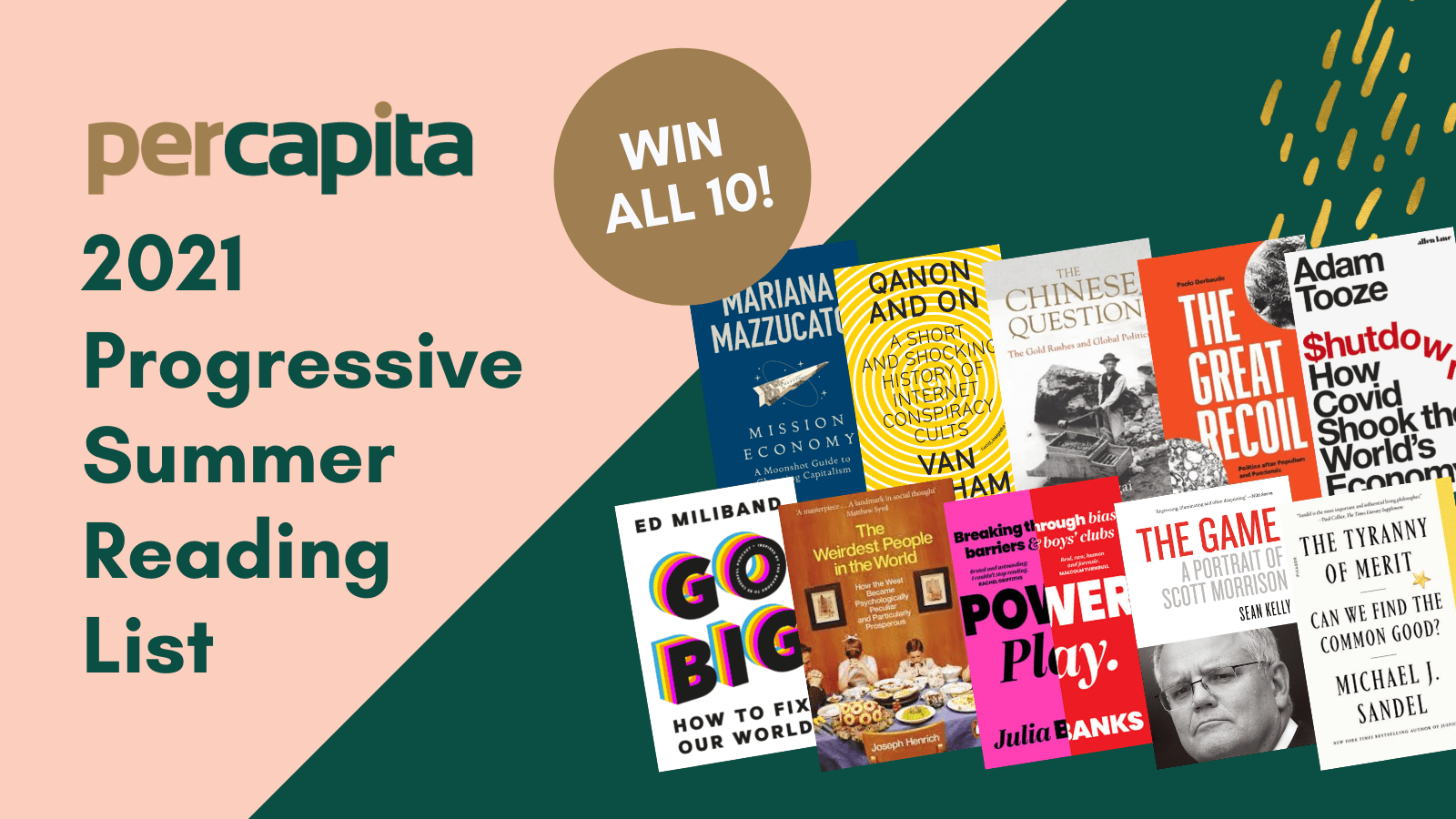Well that was another interesting year… especially for those in Melbourne and Sydney! But we’ve made it to the holiday season and an excellent time to sit outside with a tea and a book. The time has come again for us to share our top 10 progressive reads released over the past year.
And you have a chance to win them all! To go into the draw to win all 10 books just donate $10 to our summer fundraiser here by 31 December. Want extra entries? Every $10 donated will get you an extra entry – and make your donation a monthly gift to double your entries.
Now, without further ado…the Per Capita Progressive Summer Reading List 2021.
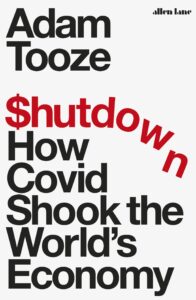 Shutdown: How COVID Shook the World’s Economy
Shutdown: How COVID Shook the World’s Economy
Adam Tooze
Shutdown proposes that COVID is our first major crisis of the anthropocene era. And Tooze argues that by plague standards it was pretty mild, but look at the havoc it has wrought on our overextended internationalised economies. He describes the scale of spending by governments as revolutionary, but not necessarily in the way we might like – the spending is enormous, but hasn’t changed our political/public thinking on government spending more generally to solve things like poverty. Once the crisis is over the spending goes back into the box.
At its centre it’s a rallying cry for being prepared for the next crisis.
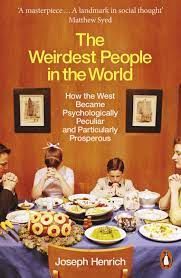
The WEIRDest People in the World: How the West Became Psychologically Peculiar and Particularly Prosperous
Joseph Henrich
The WEIRDest People in the World is a big theory-of-everything type book. Henrich uses the categories of Western, Educated, Industrialized, Rich, and Democratic to distinguish western societies from others, and to explain why they became so globally dominant from the 15th century onward.
He argues that Christian heritage caused a rupture from the otherwise universal kinship bonds (eg in 16thcentury China you would get punished more severely for crimes against a relative than a non-relatives). Later he argues that westerners actually think differently from non-westerners – our education leads us to think analytically in a compartmentalised fashion, while other cultures tend toward holistic thinking.
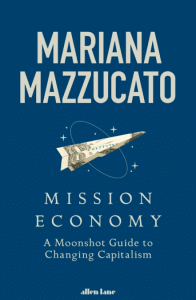 Mission Economy: A Moonshot Guide to Changing Capitalism
Mission Economy: A Moonshot Guide to Changing Capitalism
Mariana Mazzucato
Even before the Covid-19 pandemic in 2020, capitalism was stuck. It had no answers to a host of problems, including disease, inequality, the digital divide and, perhaps most blatantly, the environmental crisis.
Taking her inspiration from the ‘moonshot’ programmes which successfully coordinated public and private sectors on a massive scale, Mariana Mazzucato calls for the same level of boldness and experimentation to be applied to the biggest problems of our time.
We can only begin to find answers if we fundamentally restructure capitalism to make it inclusive, sustainable, and driven by innovation that tackles concrete problems. That means changing government tools and culture, creating new markers of corporate governance, and ensuring that corporations, society, and the government coalesce to share a common goal.
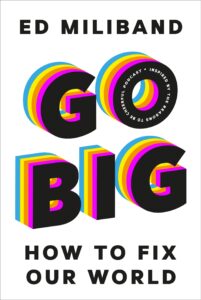
Go Big: How to Fix Our World
Ed Miliband
Ed Miliband’s book radiates optimism and lofty ambitions for a new ‘social contract’ in a less fractious and polarised world. The British Shadow Secretary of State for Climate Change and Net Zero draws on lessons from his award-winning podcast, Reasons to be Cheerful, as he outlines an evidence-based vision for a society that tackles ‘wicked’ policy problems from climate change to inequality. Miliband frames even the recent COVID-19 crisis as an opportunity to achieve enduring social and economic reform. To echo Miliband’s sentiments in the book’s introduction: “the future is not yet written. It’s our job to write it, [and] Go Big shows us how”.
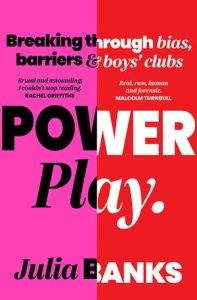
Power play: Breaking through bias, barriers and boys’ clubs
Julia Banks
Australia’s reckoning with the #MeToo movement over these past several months sparked the historic March4Justice protests alongside an ongoing conversation about treatment of women in the workplace, particularly in our nation’s Parliament. Julia Banks eloquently encapsulates the high-pressure environment within the ‘Canberra bubble’, which has fomented toxic power dynamics between staffers, elected representatives and journalists on both sides of the aisle. Her memoir is a scathing critique of those who consistently act with impunity, exploit gender disparities for political gain, and coercively control those who share their experiences of endemic sexism and bullying. In light of the release of Sex Discrimination Commissioner Kate Jenkins’ independent review into Commonwealth Parliamentary Workplaces, Banks’ memoir – brimming with candid advice and reflections from her successful legal career and time in politics – ‘sets the standard’ for a future where women should be inspired to lead their political careers with confidence and grit.
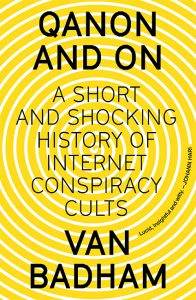 QAnon and On
QAnon and On
Van Badham
In QAnon and On, Guardian columnist Van Badham delves headfirst into the QAnon conspiracy theory, unpicking the why, how and who behind this century’s most dangerous and far-fetched internet cult.
But what would motivate followers to so forcefully avoid the facts and surrender instead to made-up stories designed to influence and control? It’s a question that has haunted Van, herself a veteran of social media’s relentless trolling wars. In this daring investigation, Van exposes some of the internet’s most extreme communities to understand conspiracy cults from the inside. QAnon and On is the story of the modern internet, the farscape of political belief and a disinformation pipeline built between the two that poses an ongoing threat to democracy itself.
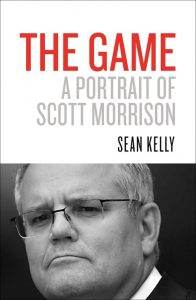
The Game: A Portrait of Scott Morrison
Sean Kelly
What happens when the prime minister views politics as a game?
A must-read account of a man, a time and a nation.
Sean Kelly gives us the definitive portrait of Scott Morrison – a politician not quite like any other. Morrison understands that politics has become a game – one he is determined to win. He also understands something essential about Australia, something many of us are unwilling to admit, even to ourselves. But there are things Scott Morrison does not understand. This is the story of those failures, too – and of how Morrison’s approach to politics has become a dangerous liability.
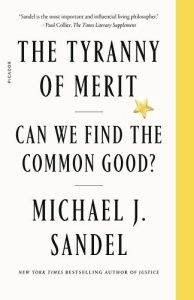
The Tyranny of Merit: Can We Find the Common Good?
Michael J Sandel
These are dangerous times for democracy. We live in an age of winners and losers, where the odds are stacked in favor of the already fortunate. Stalled social mobility and entrenched inequality give the lie to the American credo that you can make it if you try. The consequence is a brew of anger and frustration that has fueled populist protest and extreme polarization, and led to deep distrust of both government and our fellow citizens–leaving us morally unprepared to face the profound challenges of our time.
World-renowned philosopher Michael J. Sandel argues that to overcome the crises that are upending our world, we must rethink the attitudes toward success and failure that have accompanied globalization and rising inequality. Sandel shows the hubris a meritocracy generates among the winners and the harsh judgement it imposes on those left behind, and traces the dire consequences across a wide swath of American life. He offers an alternative way of thinking about success–more attentive to the role of luck in human affairs, more conducive to an ethic of humility and solidarity, and more affirming of the dignity of work.
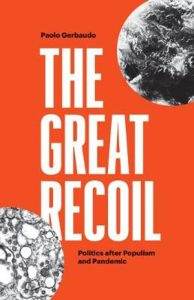
The Great Recoil: Politics after Populism and Pandemic
Paolo Gerbaudo
What comes after neoliberalism? In these times of health emergency, economic collapse, populist anger and ecological threat, societies are forced to turn inward in search of protection. Neoliberalism, the ideology that presided over decades of market globalisation, is on trial, while state intervention is making a spectacular comeback amid lockdowns, mass vaccination programmes, deficit spending and climate planning. This is the Great Recoil, the era when the neo-statist endopolitics of national sovereignty, economic protection and democratic control overrides the neoliberal exopolitics of free markets, labour flexibility and business opportunity.
The central issue in dispute is what mission the post-pandemic state should pursue: whether it should protect native workers from immigration and the rich against redistributive demands, as proposed by the right’s authoritarian protectionism; or reassert social security and popular sovereignty against the rapacity of financial and tech elites, as advocated by the left’s social protectivism. Only by addressing the widespread sense of exposure and vulnerability may socialists turn the present phase of involution into an opportunity for social transformation.
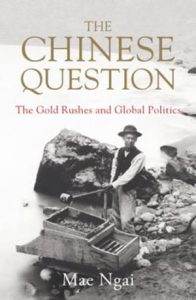
The Chinese Question: The Gold Rushes and Global Politics
Mae Ngai
In roughly five decades, between 1848 and 1899, more gold was removed from the earth than had been mined in the 3,000 preceding years, bringing untold wealth to individuals and nations. But friction between Chinese and white settlers on the goldfields of California, Australia, and South Africa catalyzed a global battle over “the Chinese Question”: would the United States and the British Empire outlaw Chinese immigration?
This distinguished history of the Chinese diaspora and global capitalism chronicles how a feverish alchemy of race and money brought Chinese people to the West and reshaped the nineteenth-century world. Drawing on ten years of research across five continents, prize-winning historian Mae Ngai narrates the story of the thousands of Chinese who left their homeland in pursuit of gold, and how they formed communities and organizations to help navigate their perilous new world. Out of their encounters with whites, and the emigrants’ assertion of autonomy and humanity, arose the pernicious western myth of the “coolie” laborer, a racist stereotype used to drive anti-Chinese sentiment.

